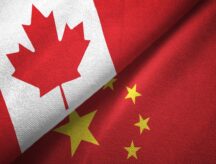Travellers must be fully vaccinated to enter Canada starting January 15
Travellers to Canada will now have to be fully vaccinated in order to enter to country. Some exempt travellers may still enter, but will be subject to testing, quarantine and other public health measures.
Canada already required non-essential travellers from foreign countries to be vaccinated. Starting today, January 15, essential travellers must also be fully vaccinated in order to enter the country, which includes:
- family members of Canadians, permanent residents, and people registered under the Indian Act;
- international students age 18 and older;
- athletes;
- work permit holders, except for those working in agriculture and food processing; and
- essential service providers, including truckers.
Canadian citizens and permanent residents cannot be denied entry into Canada. However, unvaccinated Canadians will need to meet the pre-entry, arrival, day-eight testing, and quarantine requirements.
Discover if You Are Eligible for Canadian Immigration
Unvaccinated or partially-vaccinated foreigners will only be allowed to travel to Canada if they meet an exemption. Some of the exempt groups include agricultural and food processing workers, marine crew members, people coming to Canada on compassionate grounds, new permanent residents, resettling refugees, and some children under age 18.
Travellers who are exempt from needing to be fully vaccinated will still be subject to testing, quarantine, and other entry requirements. Foreign nationals who are not vaccinated and do not fall under an exemption will be prohibited from entering Canada.
People who have COVID-19 symptoms upon arrival at the border will be directed to a Public Health Agency of Canada (PHAC) official and will be told to isolate for 10 days from the time symptoms first occurred.
Border officers make the final decision on who can enter the country, and whether incoming travellers have to quarantine.
Canada originally announced the vaccination requirement on travellers in November, the same time the government expanded its definition of "fully vaccinated."
To be considered fully vaccinated, travellers must have received the full recommended dose of an approved vaccine. The final dose must have been administered at least 14 days before attempting to enter Canada. Travellers also must submit all required COVID-19 information to ArriveCAN before crossing the border.
Canada's government-approved vaccines include:
- AstraZeneca/COVISHIELD (ChAdOx1-S, Vaxzevria, AZD1222)
- Bharat Biotech (Covaxin, BBV152 A, B, C)
- Janssen/Johnson & Johnson
- Moderna (mRNA-1273)
- Pfizer-BioNTech (Comirnaty, tozinameran, BNT162b2)
- Sinopharm BIBP (BBIBP-CorV)
- Sinovac (CoronaVac, PiCoVacc)
At this time, it is not required to have a booster dose to be considered fully vaccinated in Canada.
Discover if You Are Eligible for Canadian Immigration
© CIC News All Rights Reserved. Visit CanadaVisa.com to discover your Canadian immigration options.
- Do you need Canadian immigration assistance? Contact the Contact Cohen Immigration Law firm by completing our form
- Send us your feedback or your non-legal assistance questions by emailing us at media@canadavisa.com







